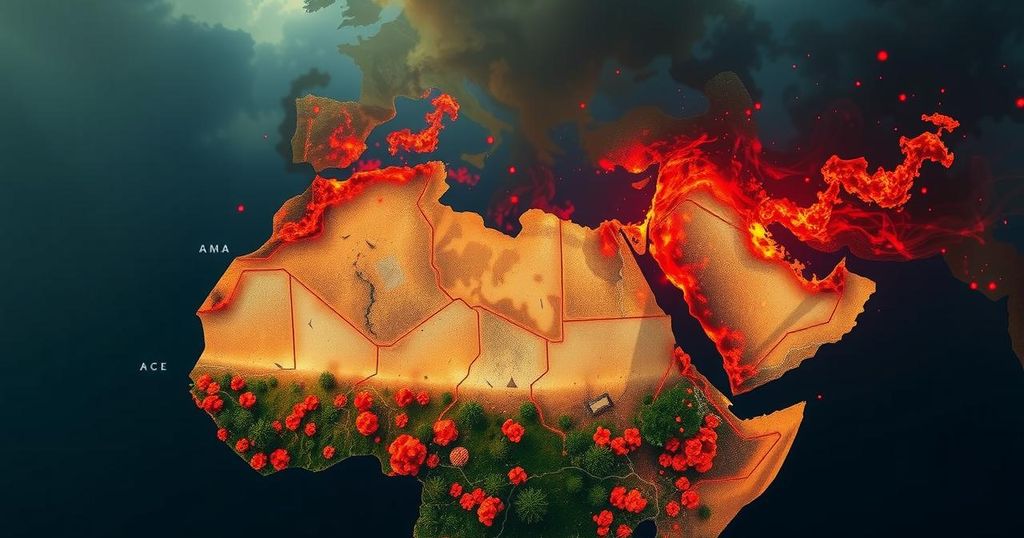Rising Tensions in the Horn of Africa: A Call for Urgent Diplomatic Action

The Horn of Africa is experiencing escalating tensions, particularly involving Ethiopia as Prime Minister Abiy Ahmed seeks access to the Red Sea, complicating relations with Somalia and attracting regional activism from Egypt and Eritrea. With non-African nations also influencing the situation, the risk of conflict is high, threatening humanitarian crises and global economic stability. It is crucial for the United States to intervene diplomatically to de-escalate these tensions.
The Horn of Africa once again finds itself at a critical juncture as tensions are escalating between various regional actors. Following a brief respite from conflict due to a ceasefire agreement in Tigray signed in 2022, underlying issues remain unresolved, particularly regarding the reintegration of displaced persons. This volatility has only intensified amidst Ethiopian Prime Minister Abiy Ahmed’s contentious pursuit of access to the Red Sea. His recent attempt to engage with Somaliland—an autonomous region aspiring for independence—has strained Ethiopia’s historically complicated relations with Somalia. The repercussions have prompted Egypt to bolster ties with Somalia, primarily due to its concerns about the Grand Ethiopian Renaissance Dam’s effects on the Nile River. Meanwhile, Eritrea has sought to exploit these tensions by hosting discussions with both Egypt and Somalia, aiming to maintain a weakened neighborhood. Amidst this regional turmoil, non-African nations are also playing their roles. Turkey has strengthened its bonds with Somalia, whereas the United Arab Emirates continues its association with Mr. Abiy. Consequently, the intricacies of these alliances elevate the risk of miscalculations leading to larger conflicts. Such disturbances, if they arise, would primarily affect the lives of those within Africa while also disrupting crucial global shipping routes—thereby impacting the international economy and straining resources in neighboring countries due to increased refugee flows. The dire need for conflict mitigation grows even more pressing considering the ongoing humanitarian catastrophe in Sudan, where a civil war has escalated without sufficient international attention. Additionally, opportunities for extremist groups, such as al-Shabaab, are proliferating amid Somalia’s instability. Therefore, in the face of domestic political challenges, it is imperative for the United States to actively engage in diplomatic efforts aimed at de-escalation and conflict prevention throughout the Horn of Africa.
The Horn of Africa has a longstanding history of conflict and political instability, particularly highlighted by the civil strife experienced in Ethiopia, particularly in the Tigray region. The U.S. has, in recent years, been a significant actor in attempts to stabilize the region, but ongoing tensions threaten a return to violence. Ethiopia’s quest for access to the Red Sea exacerbates its relationships with neighboring Somalia, alongside the geopolitical interests of other regional and global players like Egypt, Turkey, and the UAE, complicating the security landscape. The current situation demands urgent attention to avoid the broader implications of conflict in this volatile area.
In conclusion, the rising tensions in the Horn of Africa pose significant risks not only to the nations involved but also to global stability. The complexities of regional dynamics, compounded by external influences, make the likelihood of conflict higher—a scenario that would have disastrous humanitarian and economic ramifications. The United States and other international stakeholders must prioritize diplomatic engagement and conflict resolution to avert an escalation that could affect millions and destabilize global shipping routes.
Original Source: www.cfr.org








